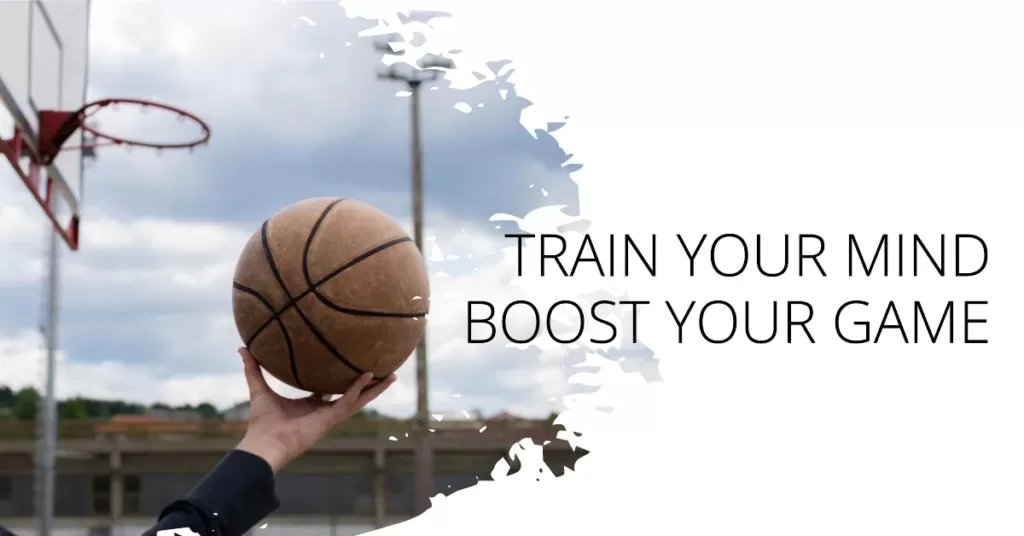In the world of sports, we often marvel at the physical prowess and exceptional skills of athletes. From breathtaking goals to record-breaking jumps, their abilities seem almost superhuman. However, what many fail to recognize is that behind these extraordinary feats lies another crucial element: the power of the mind. Mental performance coaching has emerged as a game-changer for athletes looking to unlock their full potential on the field, court, or track. By studying and emulating the techniques employed by great sports minds, athletes can elevate their mental game to new heights and achieve unparalleled success in their athletic pursuits.
Table of Contents
- 1 The Importance of Mental Training in Sports
- 2 The Mind-Body Connection: Enhancing Performance
- 3 Techniques for Mental Training in Athletics
- 4 Overcoming Challenges and Building Resilience
- 5 The Role of Visualization in Athletic Success
- 6 Maintaining a Positive Mindset for Peak Performance
- 7 Conclusion: The Power of Mental Training in Sports
The Importance of Mental Training in Sports
Mental training is often overlooked in the world of sports, but it is a crucial aspect that can greatly impact performance. While physical skills and abilities are important, mental skills play an equally significant role in athletic success. Athletes who prioritize mental training not only improve their focus and concentration, but also develop resilience, confidence, and the ability to perform under pressure.
One key benefit of mental training is enhanced focus. In a sport where split-second decisions can make all the difference, maintaining optimal concentration is paramount. Mental exercises such as visualization and mindfulness can sharpen an athlete’s ability to stay present on the field or court, allowing them to react quickly and effectively to changing situations. Additionally, mental training helps athletes build resilience by teaching them how to bounce back from setbacks such as injuries or defeats. Through techniques like positive self-talk and goal setting, athletes can cultivate a strong mindset that enables them to overcome challenges and stay motivated throughout their sporting careers.
In summary, while physical skills lay the foundation for athletic performance, mental skills are what set apart high-performing athletes from the rest. Investing time in mental training not only improves focus and builds resilience but also enhances the confidence levels needed to perform at the highest level.
The Mind-Body Connection: Enhancing Performance
Elite athletes are constantly striving to enhance their performance on the field, and many turn to mental training as a means to achieve this goal. The mind-body connection plays a crucial role in athletic performance, as it not only affects an athlete’s physical abilities but also their mental state during competition. Recent studies have shown that training the mind can have a significant impact on overall performance, leading to improved focus, increased motivation, and enhanced resilience.
By integrating mental exercises into their training routine, elite athletes are able to tap into the power of the mind-body connection. Visualization techniques have been found to be particularly effective in helping athletes enhance their performance. By visualizing successful performances and imagining themselves achieving their goals, athletes are able to train both their minds and bodies simultaneously. This practice allows them to create neural pathways in the brain that reinforce positive behaviors and movements, ultimately translating into better physical execution on game day.
Another aspect of the mind-body connection is managing stress and anxiety levels during competition. Elite athletes often face high-pressure situations that can negatively impact their performance if not managed effectively. Through strategies such as deep breathing exercises or mindfulness meditation, athletes can reduce stress levels and stay calm under pressure. By keeping their minds focused and centered, they are able to optimize physical performance without being overwhelmed by external factors.
Techniques for Mental Training in Athletics
One powerful technique for mental training in athletics is visualization. By creating vivid mental images of oneself successfully performing certain skills or achieving specific goals, athletes can improve their performance on the field. Research has shown that the brain cannot differentiate between a real experience and a vividly imagined one, which means that practicing mentally can be just as effective as physical practice. Incorporating visualization into training routines can help athletes build confidence, enhance focus, and reduce anxiety.
Another effective technique that sports psychologists often recommend is positive self-talk. This involves consciously replacing negative thoughts with positive ones during training and competitions. By reframing doubts or critical inner voices into encouraging statements, athletes can boost their motivation and self-belief. For example, instead of saying I’m not good enough, an athlete might say I’ve trained hard for this moment and I have what it takes to succeed. Cultivating positive self-talk not only improves mindset but also maintains focus and resilience in the face of setbacks or challenges on the field.
Overall, mental training exercises play a crucial role in improving athletic performance by optimizing mindset, focus, confidence, and resilience. Visualization and positive self-talk are just two techniques among a range of applicable methods that athletes can utilize to elevate their game to new heights. By incorporating these strategies into their routine alongside physical training programs, athletes can effectively harness the power of their minds to excel on the playing field.
Overcoming Challenges and Building Resilience
Athletes face a multitude of challenges throughout their careers, both on and off the field. From injuries to setbacks in training, the journey to success is often riddled with obstacles. However, it is through overcoming these challenges that athletes are able to build resilience – a necessary skill for achieving peak performance.
One key aspect of building resilience is developing a growth mindset. Athletes who believe they have the ability to grow and improve are more likely to persevere when faced with adversity. They view mistakes as opportunities for learning and see setbacks as temporary roadblocks rather than permanent failures. By focusing on what they can control and continuously working toward improvement, athletes can build the mental fortitude needed to bounce back from any setback.
In addition, tapping into social support networks can greatly enhance an athlete’s ability to overcome challenges and build resilience. Surrounding oneself with positive influences such as coaches, teammates, friends, and family members creates a support system that provides encouragement during difficult times. These individuals can provide guidance, motivation, and perspective that help athletes navigate through tough situations. Moreover, sharing experiences with others who have faced similar challenges fosters camaraderie and allows athletes to learn from one another’s triumphs and failures.
The Role of Visualization in Athletic Success
Visualization aka mental imagery, plays a crucial role in the realm of athletics. It is not limited to simply seeing oneself crossing the finish line first or making a remarkable catch; it involves creating a multi-sensory experience that enhances an athlete’s overall performance. When athletes visualize themselves executing precise movements, they activate the same neural pathways as if they were physically performing those actions. This process strengthens their muscle memory and improves coordination, allowing them to perform at their highest level.
Furthermore, visualization allows athletes to mentally rehearse challenging situations and develop strategies for success. By visualizing scenarios where they face obstacles or competitors who are stronger, faster, or more skilled, athletes can prepare themselves mentally and develop game-changing techniques during critical moments in competition. Studies have shown that those who consistently engage in visualization exercises have higher levels of self-confidence and are better equipped to handle high-pressure situations. By cultivating mental toughness through visualization techniques, athletes can enhance their focus and resilience while maintaining peak performance under any circumstance.
Visualization is an invaluable tool for athletic success. It not only allows athletes to improve their physical skills but also hones their mental fortitude and strategic thinking abilities. By incorporating regular visualization practices into their training routines, athletes can unlock new levels of performance by tapping into the power of their minds.
Maintaining a Positive Mindset for Peak Performance
Having a positive mindset is crucial for athletes looking to achieve peak performance. When faced with challenges, setbacks, or pressure, maintaining a positive outlook can help athletes stay focused and motivated. It allows them to believe in their abilities and overcome any obstacles that come their way.
Gratitude is an important aspect of cultivating a positive mindset. Focusing on what they are grateful for helps athletes appreciate their progress, achievements, and the opportunities they have been given. Gratitude has been shown to enhance mental wellbeing, reduce stress levels, and improve overall athletic performance.
Conclusion: The Power of Mental Training in Sports
The power of mental training in sports cannot be overstated. While physical conditioning is important, it is often the mental aspect that sets athletes apart and allows them to achieve greatness. By harnessing the power of their minds, athletes can push through barriers, overcome setbacks, and perform at their peak.




